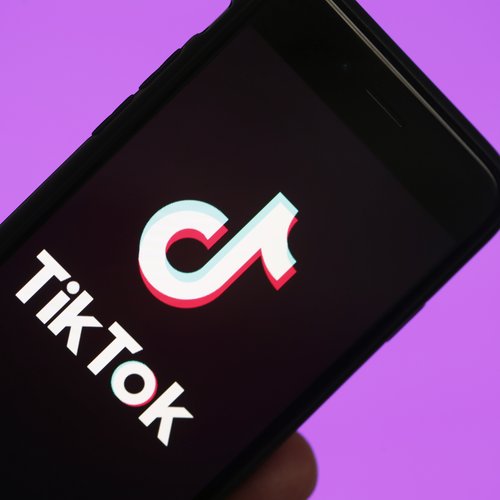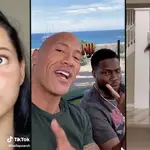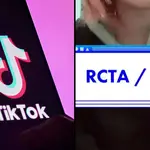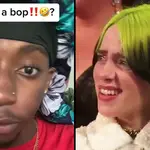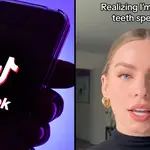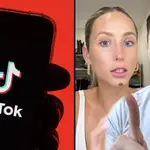Coming Out Chats: Peppermint and Jackie Cox in conversation
11 November 2021, 12:00
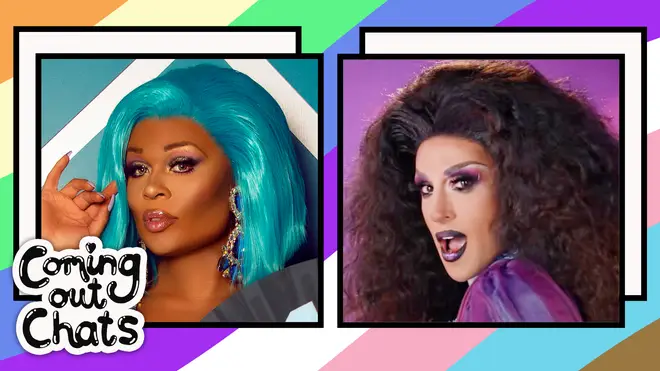
"Justice is what love looks like in public"
Listen to this article
Welcome to Coming Out Chats, the podcast where our guests open up to each other about their coming out journeys. This week we're joined by Peppermint and Jackie Cox.
Peppermint is a trailblazing actress, singer, reality star, and activist, who found fame on season 9 of RuPaul's Drag Race.
After the show, Peppermint became the first trans woman to originate a principal role on Broadway in the musical Head Over Heels. Peppermint is currently starring in Call Me Mother, a new reality show on OutTV, where she mentors up and coming drag talent while they compete for a $50,000 cash prize.
This year, Peppermint became the ACLU’s first artist ambassador for Transgender Justice, helping to inspire action and educate the public about the lives of transgender and non-binary people.
Joining Peppermint is fellow drag queen, Jackie Cox.
Jackie first appeared on our TV screens on season 12 of RuPaul’s Drag Race. Dubbed the Persian Princess of Drag, Jackie made history as the first queen of Iranian descent to appear on the show, and made herstory as the first queen to wear a hijab on the runway. She eventually finished in 4th place.
Jackie just wrapped the U.S leg of her solo tour, JackieVision, inspired by the Disney+ series, WandaVision. And she’ll be heading off on a new tour Down Under with fellow Drag Race alum Jan in March 2022.
In this episode, Peppermint and Jackie talk about what they were like as children, coming out in the time of AOL messenger, identifying as gender-expansive, finding your tribe, giving yourself permission to be who you really are, and so much more.
Listen and subscribe to Coming Out Chats below:
Read an excerpt from Peppermint and Jackie's chat below
Jackie Cox: Last year I came out as gender-expansive because I just don't think I fit into what our society has decided is a male or a boy. I think I'm beyond that. I don't think I'm non-binary. I don't think I'm trans. I think I'm beyond male. I'm like, male-plus [laughs], if that makes sense?
Peppermint: Yeah! It makes all the sense in the world.
Jackie: So yeah, that just something I admitted to myself very recently, in the last couple years, and a lot of it is thanks to amazing pioneers in our community, including yourself, who have shown us that you can be literally whatever you are.
Peppermint: Yeah, you are whatever you are.
Jackie: You are whatever you are! But I think giving the permission to be that is still something that I know I seek. Maybe that's just my upbringing [but] the permission to be yourself is something that I'm always looking for. And people like you give others that permission, which I think is one of the many reasons why you're so inspiring. That’s something that I'll always remember; Peppermint was on national television, talking about herself, where she was in her life. And never for a moment [did you] let that stop you doing everything else you wanted to do with your life. Coming out is scary because you have this fear, ‘If I come out, then I can't be X, or I can't be Y, or I can't be this thing that people have told me that I can't be’. To be a queer person, sometimes you feel like you won't be able to do all the things that maybe you've dreamed of. And I think you specifically have proven that to be not true.
LISTEN: Dorian Electra and Chester Lockhart in conversation on Coming Out Chats podcast
Peppermint: Thank you. Just hearing you talk about it that way, I think…we know who and what you are, even though those things can develop over time, it's not set in stone. It's great if it evolves but the ingredients are always there, wherever they are. Our gender, our identity, our sexuality, all of these things exist within us, and I think that they're there from birth but they're certainly there from an early age, and other people will often pick up on that. So, they recognise it, even if you haven't figured it out for yourself. So, it's just ironic that oftentimes the plight is really sorting those things out for ourselves. And, like you said, giving yourself permission to be what you already are. I think if you are those things, and other people recognise them even if it's before you do, then maybe it's because deep down in your subconscious, I believe that there's a point at which you know it, even if you don't talk about it to others. So maybe it's allowing yourself, to give yourself permission to acknowledge that this is who you are, and also love and defend that person. And give that person that persona, that identity on the inside. Allow them to have justice. There's a quote by Cornel West that resonates with me in this instance, ‘Justice is what love looks like in public’. When you are queer, there certainly have been moments where queer folks have been sort of self-tormented and not sure if they're going to come out about these things. Like you said earlier, 'a secret that you guess you have to hold until you die', but it's not really that well-kept a secret, because others around you can pick up on it and so they know it. In fact, they will tease you for it, and [you] can be bullied for it, or they will treat you based on what they think they know about you.
Jackie: Yeah, the first time I heard the word queer was when I was 11. A boy called me a queer but I didn't know what that word meant.
Peppermint: Yeah, even before you know! And so maybe that notion of giving yourself permission to be those things is really - to put it into hypercolor, that's a very 90s reference - nobody even knows what that is. It was a t-shirt that would change colours when you touched it.
Jackie: I want one!
Peppermint: To put it into hypercolor, maybe once that has passed, just giving yourself permission to be those things, it's giving yourself permission to fight for that person publicly.
This conversation was edited and condensed for clarity.
Listen to 'Coming Out Chats' with Lawrence Chaney and Victoria Scone
Also on the ‘Coming Out Chats’ podcast, Drag Race UK stars Lawrence Chaney and Victoria Scone talk coming out to their families, how they dealt with bullying at school, the lack of representation for younger queer women, prejudices against plus sized people in the LGBTQ community and so much more. Hit play on the player below to listen.




